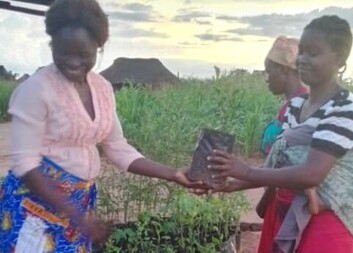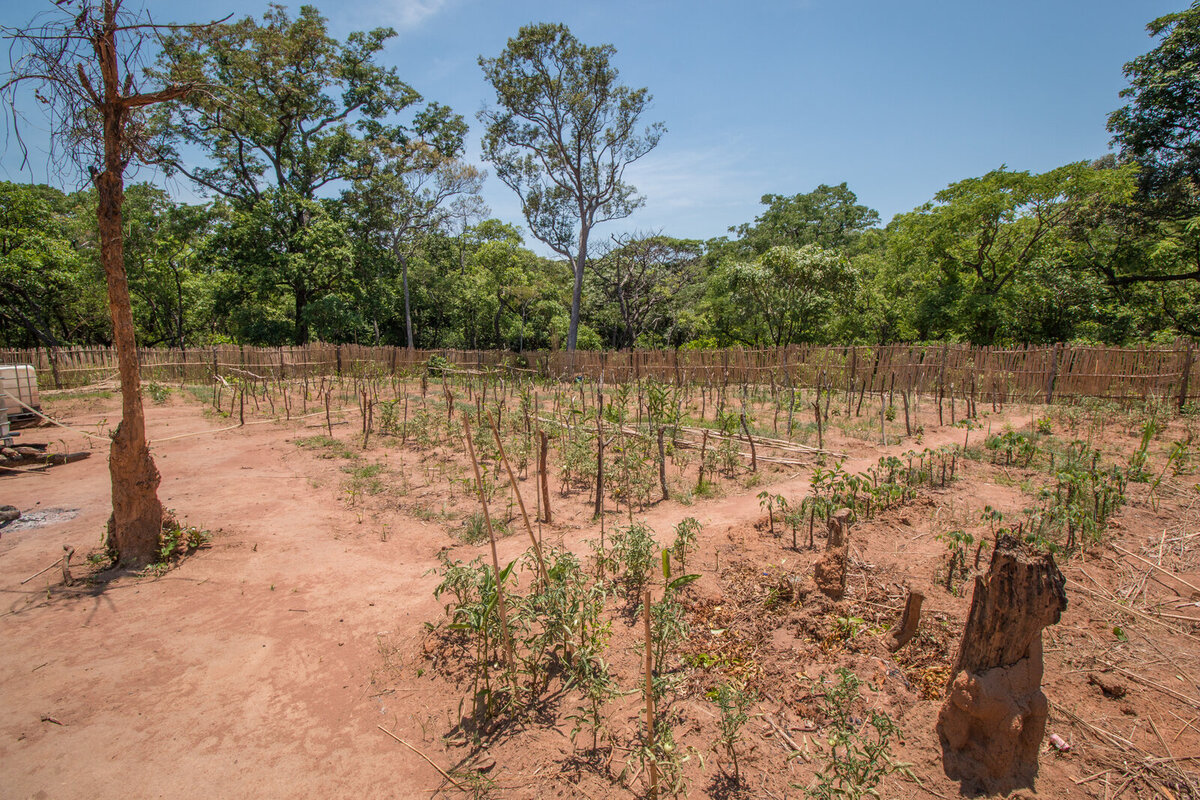There are so many ways people can become environmentally friendly, and so many people and businesses in the communities we live in have been trying to find ways of doing so. Some are looking for complex ways to achieve this, but it really just requires adopting a lifestyle that supports environmental protection, such as water conservation. For Kapinga, conservation farming is where she started. Thanks to the support of Caritas Czech Republic in Zambia, she is now well knowledgable in this farming practice.
Caritas Czech Republic Offers knowledge to Kapinga
Elizabeth Kapinga is a 37-year-old woman refugee from Mayukwayukwa refugee settlement. She is originally from Congo. She started her small-scale conservation farming journey in 2016 through the Conservation Farming Unit. But she still needed to acquire more knowledge and support in order to be successful in conservation farming.
When Caritas Czech Republic came in to help, her knowledge in farming increased. Kapinga was one of the participants of our capacity building training for refugees and their host communities in Lusaka and Mantapala, Meheba and Mayukwayukwa Settlements. We taught Kapinga more about conservation farming and also supported her through the government's Farmer Input Support Programme (FISP) with farming inputs to increase productivity and availability of food in her household.
Positive outcomes from Kapinga’s Conservation Farming
Since Kapinga started with conservation farming, she has seen a number of positive outcomes. She says that from the time she learnt all the basics of conservation farming, her land retains more moisture and soil fertility has also improved.
“Very few people are practising conservation farming in the Mayukwayukwa refugee settlement. They don’t know what they are missing. I have reduced farm labour, and cultivation costs and my yields have increased,” says Kapinga.
Kapinga also adds that pest attacks on her crops have drastically reduced as she now knows how to use natural remedies to control them. Kapinga hopes more farmers will engage in conservation farming as she does.
Kapinga’s advice to her community members
From the time Kapinga started practising conservation farming, she has reduced cutting down trees and has since advised her fellow community members to follow suit and stop burning their fields after harvest.
She has also encouraged other farmers to plant nitrogen-fixing trees like the Faidherbia Albida and plough back the green manure.
It is wonderful to know that Kapinga takes a keen interest in environmental protection issues and practices conservation farming. Kapinga’s story is a prime example for other farmers from the refugee community in Mayukwayukwa.
Interested in more stories like this? Read more:
- How is Caritas Czech Republic in Zambia protecting our planet
- Mushaukwa from Zambia now has his own cassava processing plant thanks to Caritas Czech Republic
- In Zambia, we involve local farmers to help their own communities








